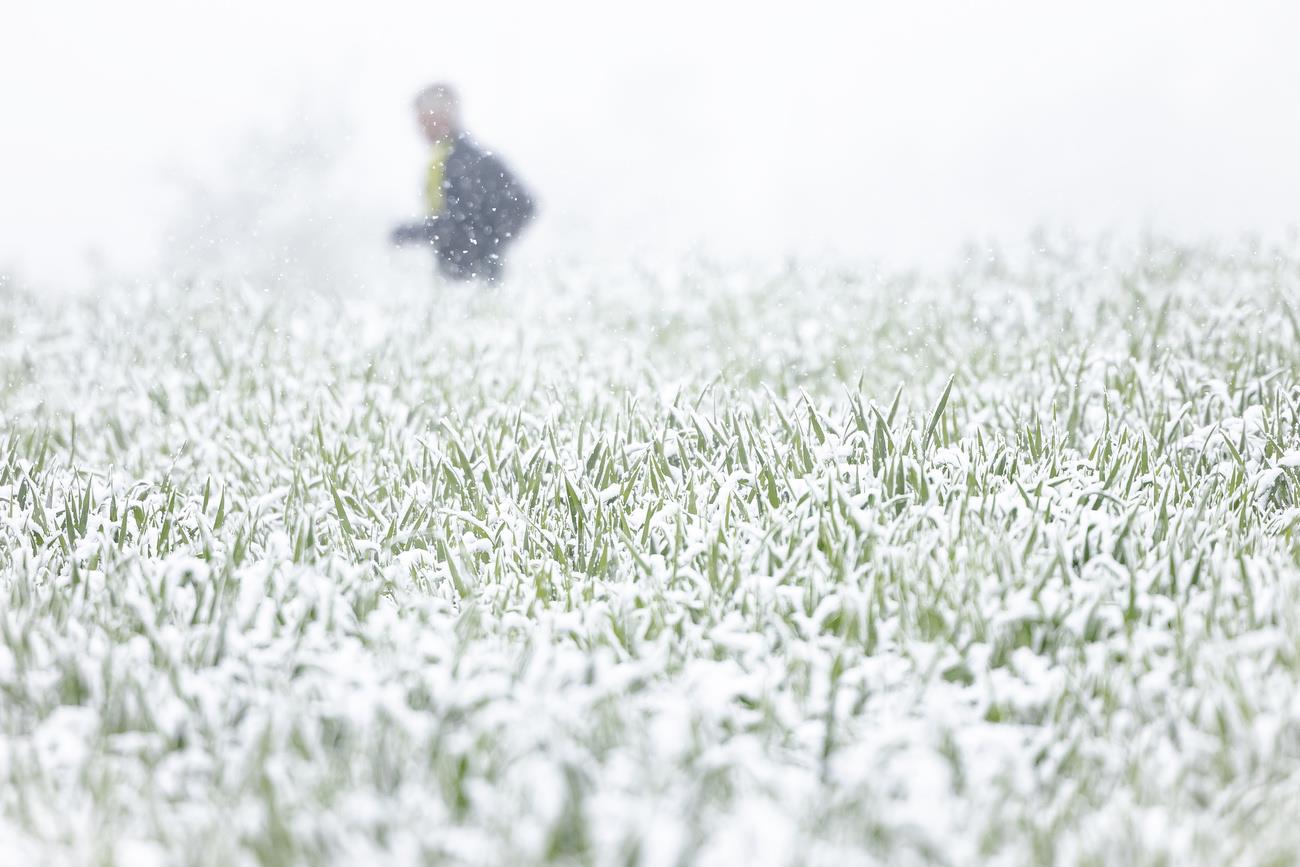
Late Frost In Switzerland Poses Increased Risk To Crops
This past winter was one of the mildest since measurements began, and the spring has also been particularly mild. This has had an effect on the arrival of seasons, which, as in previous years, has come two to four weeks ahead of schedule, says the private weather service Meteonews on its website on Sunday.
+ What 1.5°C global warming means for Switzerland and beyond
It adds that frost is to be expected on the ground over the next few days. Crops close to frost should therefore be protected. On the other hand, there should be no nights with a clearly negative temperature two metres above the ground, which is positive for fruit trees and vineyards. Frost damage should therefore remain limited.
More spring snow in the forecastIn the last 48 hours, up to half a metre of snow has fallen in certain areas, for example on the Rigi-Scheidegg mountain in central Switzerland, which boasts an altitude of 1,650 metres. The snow is expected to fall again on Sunday, reports Meteonews on the platform X. According to the weather service SRF Meteo, the snowfall limit is 500 metres, but there may also be flakes locally as far down as the plains.
+ Switzerland's climate policy violates human rights, says European court
According to the bulletin issued by the Swiss Federal Institute for Forest, Snow and Landscape Research (WSL), the current weather situation means that there is a high avalanche risk in canton Valais in the south, in central Switzerland and in the south-east of the country. Spontaneous avalanches, but also large-scale avalanches, are possible. In some cases, roads may also be affected.
Translated from French by DeepL/gw
This news story has been written and carefully fact-checked by an external editorial team. At SWI swissinfo we select the most relevant news for an international audience and use automatic translation tools such as DeepL to translate it into English. Providing you with automatically translated news gives us the time to write more in-depth articles.
If you want to know more about how we work, have a look here , and if you have feedback on this news story please write to ... .
Get the most important news from Switzerland in your inbox.
Daily
EmailThe SBC Privacy Policy provides additional information on how your data is processed.
I consent to the use of my data for the SWI swissinfo newsletter.
In compliance with the JTI standards
More: SWI swissinfo certified by the Journalism Trust Initiative
You can find an overview of ongoing debates with our journalists here . Please join us!
If you want to start a conversation about a topic raised in this article or want to report factual errors, email us at ... .

Legal Disclaimer:
MENAFN provides the
information “as is” without warranty of any kind. We do not accept
any responsibility or liability for the accuracy, content, images,
videos, licenses, completeness, legality, or reliability of the information
contained in this article. If you have any complaints or copyright
issues related to this article, kindly contact the provider above.


















Comments
No comment